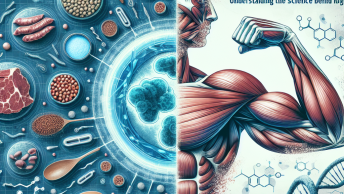As men reach the age of 50 and beyond, staying fit and healthy can become increasingly challenging. Hormonal changes, a slower metabolism, and lifestyle adjustments can make it tougher to maintain a healthy weight and shed unwanted fat. However, with the right strategies, men over 50 can achieve effective fat loss and improve their overall health. Here are ten essential tips for fat loss tailored specifically for men in this age group.
1. Understand Your Body’s Changes
As you age, your body undergoes significant changes. Muscle mass naturally declines, and fat distribution may shift. Understanding these changes is crucial to tailoring your fitness plan. Awareness will help you adopt more effective strategies that resonate with your current physical state.
2. Prioritize Strength Training
Strength training is particularly important for men over 50 as it helps counteract muscle loss. Engaging in resistance training at least twice a week can boost your metabolism, promote muscle growth, and support fat loss. Focus on compound exercises that work for multiple muscle groups, such as squats, deadlifts, and bench presses.
3. Embrace Cardio Wisely
While cardio is important for heart health and fat loss, too much can lead to muscle loss, particularly if you’re not fueling your body properly. Moderate-intensity aerobic exercises, such as brisk walking, swimming, or cycling, for at least 150 minutes a week can help burn calories without risking muscle.
4. Don’t Skip Breakfast
Starting your day with a nutritious breakfast can kickstart your metabolism and reduce the likelihood of overeating later in the day. Aim for a balanced meal including protein, healthy fats, and complex carbohydrates. Foods like eggs, whole grains, and fruits are excellent choices to fuel your morning.
5. Stay Hydrated
Many people forget the importance of hydration in their fat loss journey. Dehydration can slow your metabolism and lead to increased hunger. Aim to drink at least 8-10 cups of water a day. Consider it essential for optimal performance, digestion, and overall health.
6. Focus on Nutrient-Dense Foods
As you age, your body requires fewer calories, but the need for nutrients remains critical. Prioritize consuming whole, nutrient-dense foods such as lean proteins, vegetables, fruits, whole grains, and healthy fats. This nutrient-rich approach helps reduce hunger and supports overall well-being.
7. Watch Portion Sizes
It’s easy to underestimate portion sizes, especially when eating out or snacking. Being mindful of portion control is crucial for managing calorie intake. Consider using smaller plates and bowls to help regulate your serving sizes, and listen to your body’s hunger cues.
8. Get Quality Sleep
Adequate quality sleep is often overlooked as a crucial factor for fat loss. Poor sleep can disrupt hormone levels, including those that control appetite and metabolism, leading to weight gain. Aim for 7-9 hours of quality sleep each night, and consider establishing a calming bedtime routine.
9. Manage Stress Levels
Chronic stress can lead to emotional eating and weight gain, particularly in men over 50. Incorporate stress-reducing activities into your routine such as meditation, yoga, deep breathing exercises, or spending time with nature. Finding healthy outlets for stress will contribute significantly to your fat loss efforts.
10. Seek Support and Accountability
Lastly, don’t hesitate to seek support from friends, family, or fitness professionals. Joining a gym or community group can provide motivation, accountability, and camaraderie. Additionally, consider resources tailored for your age group to gain insights into effective strategies for fat loss.
For those looking for an extra boost in their journey, Click Here to learn more about valuable resources and programs that can support your fat loss efforts.
Conclusion
Losing fat after 50 doesn’t have to be an insurmountable challenge. By understanding your body, making informed lifestyle choices, and being consistent in your efforts, you can achieve your fat loss goals and improve your health significantly. Embrace this new chapter in your life as an opportunity to enhance your well-being, and remember – it’s never too late to start prioritizing your health!
References
- American Council on Exercise. (n.d.). The Importance of Strength Training for Older Adults.
- The Centers for Disease Control and Prevention. (2021). Physical Activity Basics.
- National Institute of Health. (2020). Sleep and Weight Management in Older Adults.






